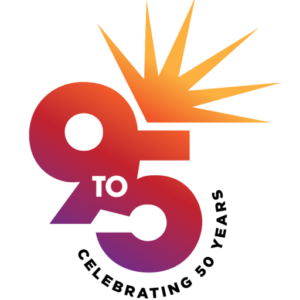9to5 is committed to economic justice along the intersections of gender, class, and race. We will continue to pursue justice together with our members, our staff, and our communities in these challenging times.
In order to keep our staff, their families and our members safe and healthy, we have closed our offices and are working remotely until at least March 30th. Local 9to5 in-person events and gatherings are either cancelled until March 30 or have moved to a virtual platform. Please contact your local chapter for details.
In a crisis, women of color and women earning low wages are often the most impacted, and experience intersecting challenges. During this public health crisis of COVID-19, also known as the novel coronavirus, we are witnessing the devastating impact of health disparities compounded by a delayed and inadequate government response that has left vulnerable people and communities out.
We want to amplify these disproportionate impacts and highlight for healthcare professionals, housing officials, legislators, and those shaping the narrative some of the ways that we and our families are especially vulnerable at this time
- People who experience poverty and people of color have higher rates of conditions that compromise our immune systems such as heart disease, lung disease, lupus, diabetes, HIV/AIDS, and malnutrition, which increases our risk of being infected by COVID-19.
- Asthma rates are higher for Black, Native American, and multiracial people and people experiencing poverty. This respiratory illness can be aggravated by COVID-19, exasperating respiratory impacts.
- Black women, Native American women, and multiracial women and women earning low wages experience interpersonal violence at higher rates, which can make home an unsafe place for social distancing or self isolation.
- People who don’t own personal vehicles have reduced feasible means of transportation to health service providers due to the suggested limits on public transportation and ride-shares.
9to5 and our allies are demanding policies that are responsive to all our communities’ needs as they continue to emerge. We are outlining urgent demands to address these issues in the wake of the current health and financial crises:
- Moratorium on evictions, rent hikes, rent & mortgage payments, and utility service termination. The financial impact of cut hours, business closures, school closures, and other shutdowns adds to the difficulties that many are already facing with meeting monthly housing payments and living costs. We demand that actions are taken to cease pursuit of rent and mortgage payments, as well as halting evictions and other consequences for late or missed payments.
- Mandated public universal paid family and medical leave. The first, often only, caregivers that people turn to when ill are family members. Yet many workers cannot care for ill loved ones due to the loss of pay if they stay home from work. We demand that a public paid family and medical leave program be established with a minimum of 12 weeks of paid leave for all.
- Mandated public universal paid sick days. The Center for Disease Control & Prevention has recommended a 14 day self-quarantine in the event of exposure to COVID-19. But for many workers, especially those working seasonal, part-time, low-wage jobs or contract positions cannot afford to heed this recommendation due to loss of pay. For this reason, we demand that employers provide a minimum of 10 paid sick days for all workers.
- Expanded access to free & comprehensive healthcare. The current healthcare system limits who can receive testing and treatment for COVID-19 and other health needs. For this reason, we demand that medicaid eligibility be greatly expanded to cover vulnerable families, and all state-imposed cost sharing is eliminated. We also demand that lawmakers pursue universal and public healthcare policies and solutions.
- Extended unemployment benefits. The high closure of workplaces has forced workers into temporary furloughs and unemployment and created risk of permanent unemployment. We demand that workers experiencing unemployment are provided unemployment benefits, temporary or permanent, for a minimum of 26 weeks.
We are tirelessly working for the safety and wellbeing of the most historically oppressed populations in our communities. As Dr. Martin Luther King Jr. said, “No one is free until we are all free.” We promise to continue working towards that freedom for ALL.
Please follow our Facebook and Twitter pages for ongoing updates.
If you need to reach us please send us an email at 9to5@9to5.org
In Solidarity,
Leng Leng Chancey
9to5, National Association for Working Women

